Fianna Fail have emerged as the largest party in local government as all seats in Ireland’s local election were filled.
The party won out in the battle for the remaining seats, putting them on a total of 248 seats compared to Fine Gael’s 245.
Results emerging from the three elections – local, European and a regional mayoral poll – have provided a political fillip for coalition partners Fine Gael and Fianna Fail, while Sinn Fein has initiated a review after performing well below the party’s own expectations.
In the local elections, both main Government parties attracted around 23% of first preference votes, representing a slight drop on their 2019 result.
Sinn Fein has 102 councillors, an increase on 81 council seats won in 2019, but party leader Mary Lou McDonald has admitted the result fell below their expectations.
The popular vote of 12% is a dramatic turnaround in fortunes for the main opposition party which emerged from the 2020 general election on 24.5%.
Elsewhere, the Labour party are down one to 56 councillors, the Green Party’s support fell to 26 council seats while the Social Democrats’ share rose to 35.
The number of Independent councillors has also increased.
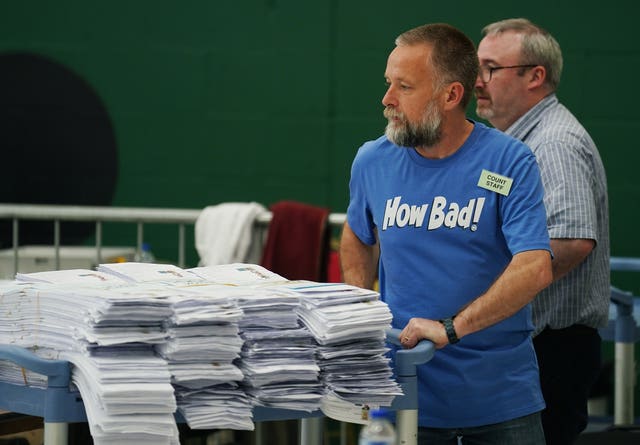
In a landmark poll in Limerick for Ireland’s first directly elected mayor, independent candidate John Moran, a former secretary general in the Department of Finance, secured victory late on Tuesday afternoon.
In the European elections, despite days of counting votes it is not yet clear whether Sinn Fein will increase its tally of MEPs.
Marathon counts continued in the Ireland South and Midlands-North West constituencies, leaving nine of the country’s 14 MEPs yet to be confirmed.
Unpredictable transfers, which political commentators said were not following traditional patterns, are adding to the drama of who will claim the final seats.
On Tuesday night, the four MEPs who will represent Dublin in the European Parliament were elected at the end of three days of counting.
Fine Gael’s Regina Doherty, Fianna Fail’s Barry Andrews, Sinn Fein’s Lynn Boylan and Labour’s Aodhan O Riordain all confirmed their places in Brussels.
Only one other MEP has so far been elected in Ireland – Fine Gael’s Sean Kelly in Ireland South.
That count, and the count in the Midlands-North-West constituency, could extend for several more days before reaching a conclusion.
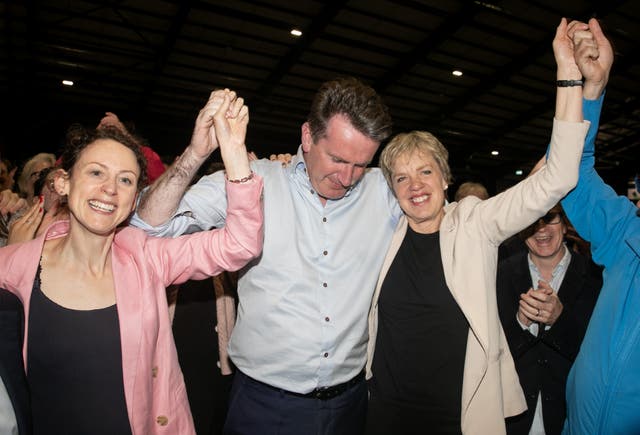
While the European picture is incomplete, the election results to date have fuelled speculation that the coalition may look to call a general election earlier than the current projected timeline of spring 2025.
However, the leaders of all three coalition parties – Taoiseach Simon Harris, Tanaiste Micheal Martin and Green Party leader Eamon Ryan – have all insisted they remain committed to the government going full term.
For her part, Sinn Fein leader Ms McDonald, who is facing questions over her stewardship of the party, has struck a defiant tone, urging Mr Harris to “bring it on” and call an early election.
With Mr O Riordain a sitting TD, and other TDs in contention for the remaining European seats, there will be a need for at least one by-election in the coming six months.
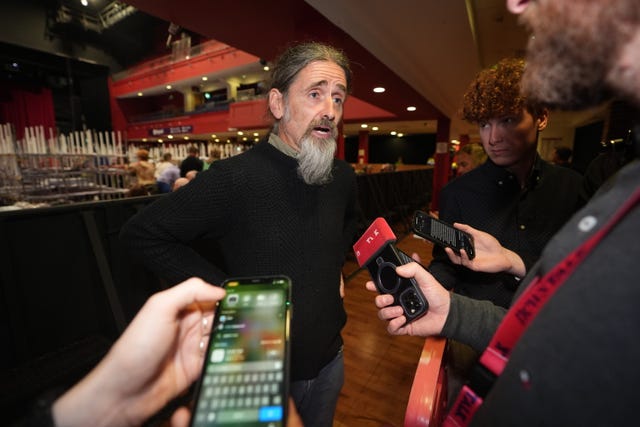
That has added to speculation that the Government may seek an earlier general election, rather than fighting several potential by-elections only months before the Dail is dissolved.
In the five-seater constituency of Ireland South, Fianna Fail’s Billy Kelleher is in place to take the second seat but the final three seats are considered too close to call.
Independent TD Michael McNamara and Sinn Fein TD Kathleen Funchion are well placed, with Fianna Fail candidate and 1994 Eurovision host Cynthia Ni Mhurchu and outgoing MEP Mick Wallace also in contention.
The Green Party’s Grace O’Sullivan said on Wednesday evening: “I’m here with the swan song.
“I definitely see it slipping away now, very much so,” she said at the Cork count centre, adding that she has not been as “extraordinarily” transfer friendly as she was in 2019.
Deirdre Clune, who was the last MEP to be elected to the Ireland South constituency in 2019, said it was impossible to tell how the transfers would go.
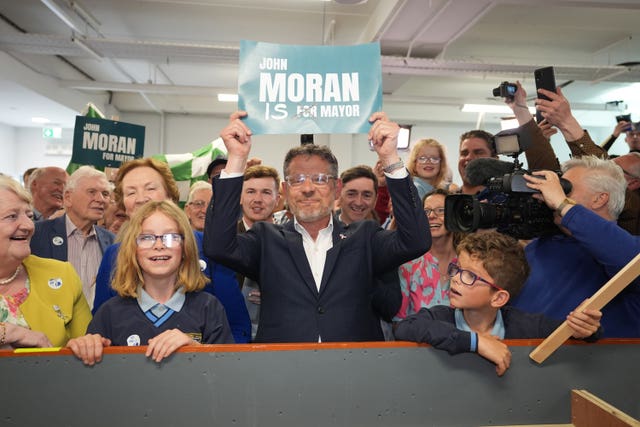
“There could be a pocket of votes there, a surprise 10,000 votes for somebody, a 5,000 that they weren’t expecting that would push them ahead of another, so anybody who thinks they can predict this, they’re trying to fool us, because you can’t. There is no way of predicting it.”
The Midlands-North-West constituency saw the first count conclude late on Monday night, as officials grappled with the process of whittling down 27 candidates vying for five seats.
Independent incumbent MEP Luke “Ming” Flanagan emerged as the frontrunner after topping the poll.
He was still leading the pack as counting continued into Wednesday evening. Next were Fine Gael candidates Nina Carberry, a former jockey, and Maria Walsh, who is seeking re-election.
If the race stays as it currently stands, Barry Cowen will be heading to Strasbourg as an MEP for Fianna Fail in the fourth seat.
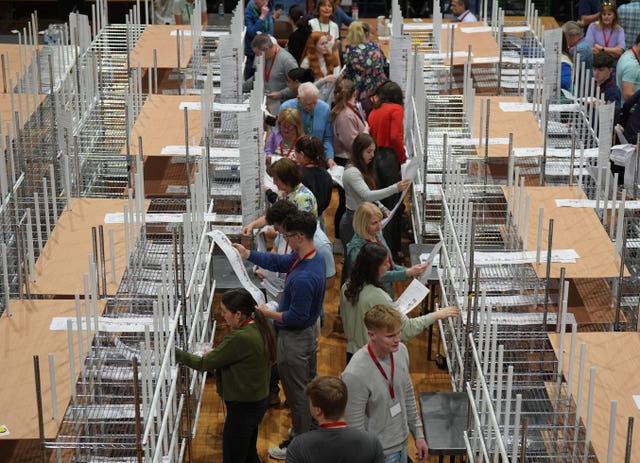
Independent Ireland candidate and former RTE correspondent Ciaran Mullooly is favourite for the fifth and final seat, meaning Sinn Fein’s Michelle Gildernew, who was her party’s main hope of retaining a seat in the constituency, may miss out if she does not receive favourable transfers.
Ms Gildernew appeared more positive about her hopes on Wednesday, saying that she had “a fighting chance”.
Asked if she had changed her mind since her initial comments which suggested she would lose out to Mr Mullooly, Ms Gildernew said: “Anything can happen in this election, lads.”




Comments: Our rules
We want our comments to be a lively and valuable part of our community - a place where readers can debate and engage with the most important local issues. The ability to comment on our stories is a privilege, not a right, however, and that privilege may be withdrawn if it is abused or misused.
Please report any comments that break our rules.
Read the rules hereLast Updated:
Report this comment Cancel